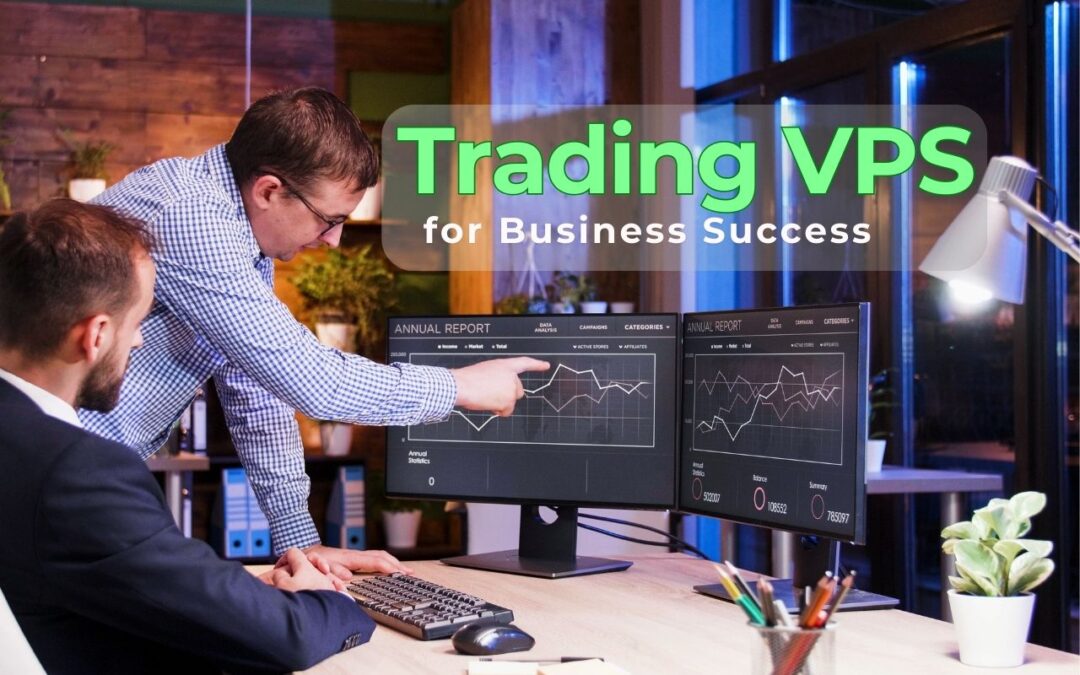In today’s fast-paced financial markets, having a reliable and efficient trading setup is crucial for success. A Virtual Private Server (VPS) has become a go-to solution for traders, providing a stable environment for executing trades with minimal downtime. However, simply having a VPS is not enough. To truly capitalize on its potential, must ensure that it is secure and scalable. This article will explore the importance of security and scalability for your trading VPS, along with actionable strategies to implement both effectively.
The Importance of a Trading VPS for Business
Trading in financial markets demands quick decision-making, reliable connectivity, and robust security. A trading VPS meets these requirements by offering a dedicated environment that minimizes latency and ensures continuous availability. This is particularly important for algorithmic trading or when executing automated strategies, as even a brief downtime can result in missed opportunities or financial loss.
A well-configured VPS guarantees that your trading platform remains online 24/7, even if your local device is turned off. By placing the server closer to financial hubs, it reduces latency and accelerates order execution, keeping you competitive in the fast-paced trading world.
Why Security Matters for Your Trading VPS
Trading activities often involve sensitive personal and financial information. A security breach not only jeopardizes your trading capital but can also put you at risk of identity theft.
Reliable Trading Setup Matters
Running NinjaTrader on a local machine can introduce unnecessary risk due to power outages or internet issues. A ninjatrader vps offers a remote, low-latency environment that stays online 24/7. Trader VPS is tailored specifically for active traders who need reliable infrastructure during live sessions.
A purpose-built pc for trading can handle the real-time demands of platforms like Thinkorswim, NinjaTrader, or TradeStation. Day Trading Computers provides performance benchmarks and expert recommendations to help traders avoid lag, freezes, and slow order execution during market hours.
The Importance of Security Measures
Implementing strong security measures for your trading VPS goes beyond just firewalls and antivirus software. Here are some critical aspects to consider:
- Data Protection: Use encryption to secure your data transfers. Tools such as SSL (Secure Sockets Layer) certificates can help protect your data from eavesdropping.
- Access Controls: Limit access to your VPS by setting strong passwords and using two-factor authentication (2FA) to provide an extra layer of protection.
- Regular Backups: Always back up your VPS data regularly. In the case of a system failure or attack, backups can save you from severe losses.
- Monitoring: Employ continuous monitoring tools to watch for any suspicious activities on your VPS.
“Investing time in securing your trading VPS can save you from incalculable losses and stress in the future.”
Common Threats and How to Mitigate Them
Understanding common threats can help you prepare better. Here are some prevalent security threats and tips to mitigate them:
- Malware Attacks: Regularly update your antivirus software and conduct routine scans.
- Denial of Service (DoS) Attacks: Use DDoS protection services to guard against such attacks that aim to overwhelm your VPS.
- Phishing Scams: Be cautious of unsolicited emails. Always verify the source before disclosing any information.
The Need for Scalability in Trading VPS
As your trading operations grow, your VPS needs to scale seamlessly without interrupting your services. Here’s how to ensure your trading platform can expand as necessary.
Assessing Your VPS Needs
Before choosing a VPS, analyze your trading requirements to ensure they’re scalable. Consider the following factors:
- CPU and RAM Specifications: Evaluate your current and projected needs to select a VPS plan that can accommodate growth.
- Storage Space: Opt for a scalable storage solution that grows with your data needs.
- Network Bandwidth: Request a VPS that can handle increased traffic, especially during high market volatility.
Choosing the Right Provider
When selecting a VPS provider, consider the following:
- Performance: Look for providers that offer high uptime guarantees (99.9% or higher).
- Customization: Ensure they allow easy upgrades to your plan as your trading demands increase.
- Support: Choose a provider known for responsive customer service, particularly in technology-related issues.
In the battle for reliable trading, QuantVPS stands out by combining technology and expertise. Their virtual servers are tuned for minimal latency, so you can capture fleeting market opportunities without lag. Real-time performance tracking helps you identify any bottlenecks before they impact your bottom line. From novice traders to established pros, QuantVPS accommodates a wide range of needs and aspirations.
Best Practices for Securing and Scaling Your Trading VPS
Implementing best practices can ensure that your VPS is both secure and capable of scaling. Below are some effective strategies:
Regular Security Audits
Conduct thorough security audits periodically:
- Check for outdated software or vulnerabilities.
- Review access logs to identify any unauthorized attempts to breach your system.
Optimizing Resources
Make use of resource management tools:
- Load Balancing: Distributing workloads evenly can prevent overload.
- Resource Monitoring Tools: Analyze metrics such as CPU usage and memory consumption to gauge when it’s time to scale.
Education and Training
Invest in knowledge:
- Regularly educate yourself on new security threats.
- Attend webinars or workshops focused on trading technology and security best practices.
Conclusion
Securing and scaling your trading VPS is vital for achieving business success in the competitive world of trading. By understanding the importance of robust security protocols and ensuring your VPS can grow with your trading needs, you can protect your investments and seize opportunities as they arise.
To take full advantage of your trading VPS, remember to stay informed, regularly evaluate your systems, and adapt as necessary. Take your trading to the next level with a secure and scalable VPS setup. Are you ready to optimize your trading infrastructure?












